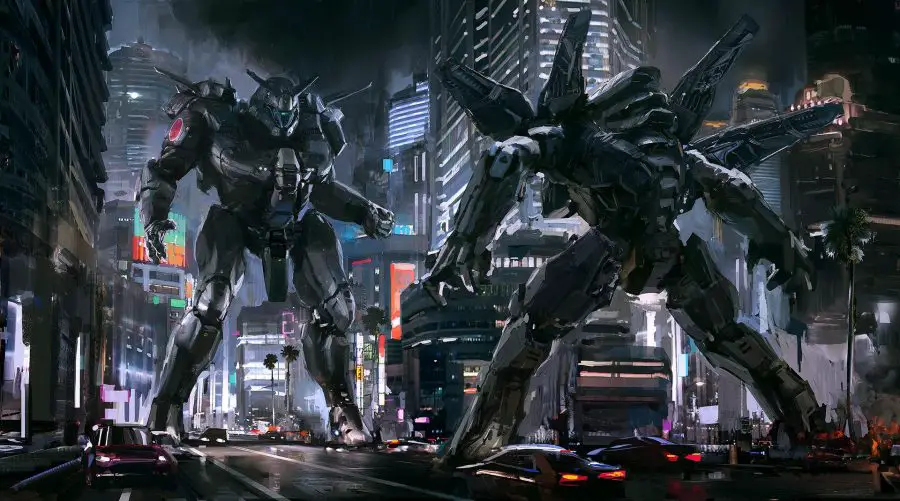United States of Japan
Peter Tieryas
Angry Robot
Release Date: March 1, 2016
ISBN 978-0-85766-533-1
Military occupations are never a pretty thing. Add in, however, a “what would it have been like, if….?” and an author has the ability to spin a yarn full of entrenched characters and moral ambiguities without being hogtied to the scrutiny of partisan history. The results can be quite potent.
This is the case with Peter Tieryas’ novel United States of Japan. In it, he envisions a world where Japan won World War II, and America has been divided up between Japan and Germany. Especially in California, where most of the action of United States of Japan takes place, the annexation is blunt and complete; loyalty to the Empire and the deified Emperor is absolute, and anyone without Asian ancestry is regarded as inferior. A small group of rebels, known as the George Washingtons, still operates in hot spots such as the demolished San Diego, but their opposition is met with brutal retaliation.
It is into this world that we meet Beniko Ishimura, a middle aged military video game censor whose lackadaisical attitude towards his work has kept him off the expected path of advancement, despite his obvious talent with computers. Beniko’s – or Ben, as he is known – greatest accomplishment seems to have been turning in his parents as traitors as a child; it is only by being attached to the coattails of the great propaganda game programmer General Kazuhiro Mutsuraga that he’s even been promoted to a modest Captain. But when the General “retired” after the death of his wife in a raid (amid rumors that she had been fraternizing with the rebels), Ben’s protection dissipated, and he floundered – good naturedly – in stalled mediocrity.
The action of the book takes place mainly in 1988 (with a few flashbacks to 1948). The USJ (as opposed to USA) is a very different place in this novel: technology and medical knowledge is vastly enhanced. “Porticals” – much like today’s computer tablets – are the norm, the internet is as pervasive as it is today; what we know as wi-fi has just been realized. Giant mechas – mechanical robots powered by a living pilot (think Pacific Rim) – provide government security in large cities and military installations. Virtually all major diseases, including cancer, have been eradicated.
But all, at a massive cost. Depravity is rampant, clothed in marvels and slick avarice. Medical advancements are made at the expense of thousands – hundreds of thousands – of test subjects, unwilling and powerless, treated with a clinical detachment that ignores their humanity. Paranoia is everywhere, and incompetence at the highest levels has become an art form. The smallest utterance against the Emperor, even in jest, can be met with disgrace and often, execution. Judicial process is nonexistent. Rival troops of secret police with carte blanche power run roughshod over anyone that comes under their notice, deserved or not.
The rebels are not that much better. A larger threat than what the government is willing to acknowledge, their talk of “give me liberty or give me death” more often courts flamboyant sacrifice than actual results. They kill just as indiscriminately, torture just as ruthlessly, spout religious ideology just as fervently as their enemies invoke the Empire/Emperor. Still, the myth of freedom that was the USA slowly begins to gain ground as even the USJ faithful chafe in the grip of utter totalitarianism.
In this dismal environment, Ben’s lack of ambition and honesty (one gets the feeling more to keep from being caught in a lie rather than due to any personal integrity) is actually quite refreshing. He seems to have no personal agenda other than to stay under the radar while still enjoying the perks of working in the government (his knowledge of good places to eat is voluminous). But when General Mutsuraga’s daughter commits suicide after interrogation by the secret police (or so the story goes), Ben is honor bound to fulfill a promise made to her many years ago. When a video game created by the suddenly vanished General allows players to fight as valiant Americans against a Japanese enemy, Ben’s vendetta coincides with the mission of a vicious Tokko agent looking to track down the traitor. The action significantly ramps up, yet the unlikely partners also discover much about themselves.
Often brutal, at times genuinely humorous, and occasionally profoundly poignant, United States of Japan is a political action adventure where the characters – sometimes atypical, sometimes caricatures – anchor the narrative in a step above the norm. While the unfolding of the story in its rarified environment is what draws us in, perhaps the most lasting thing we come away with is that in any culture, in any setting, honor must be more than a political slogan.
~ Sharon Browning

